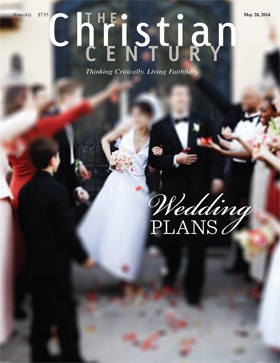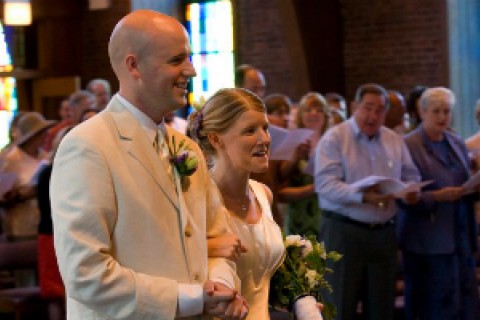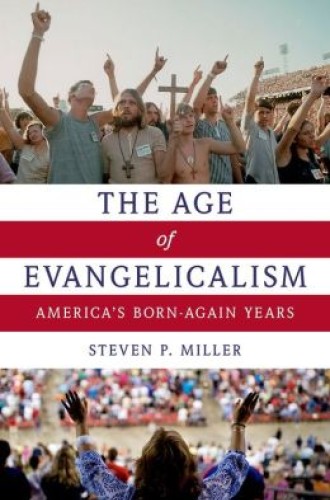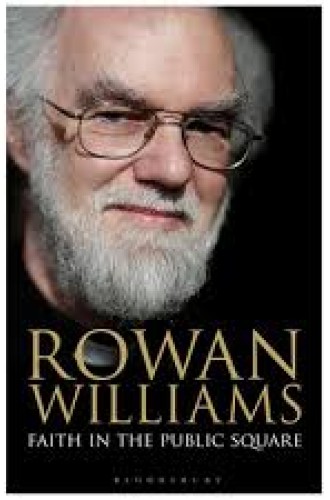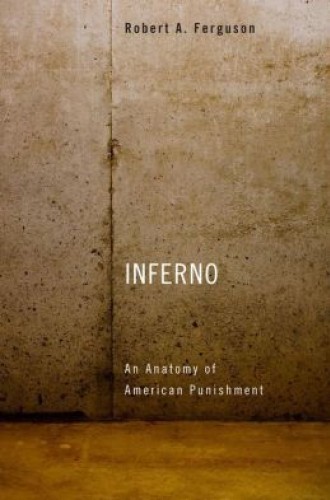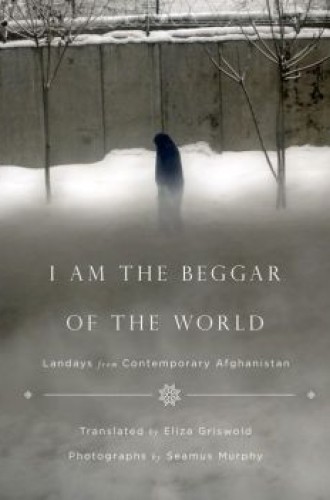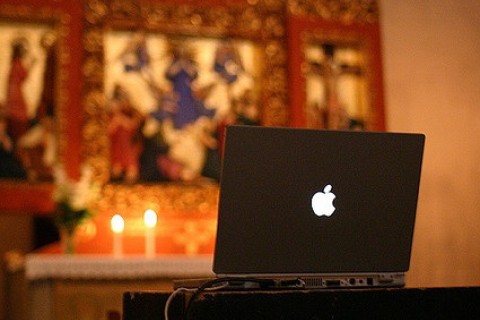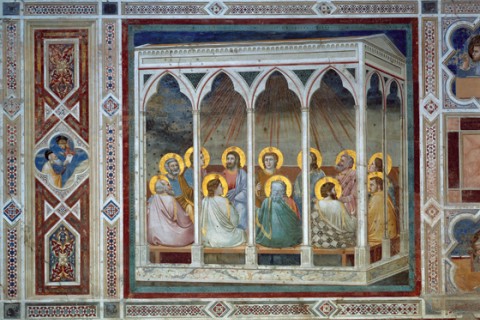Features
Painting Pentecost
Painter Sawai Chinnawong saturates the outpouring of the Spirit with the colors Thai art traditionally associates with the holy.
Listening well: A chaplains vocation
Listening itself has a sacramental dimension. When a family gathers around a hospital bed, it becomes a sort of communion table.
Chicken keepers: Loving and eating animals
When you grow up with a grandmother who insists that you thank the hens every time you gather their eggs, gratitude becomes second nature.
Mixed and matched: Challenges of interfaith weddings
Interfaith couples can connect to their traditions and find commonality through symbols, such as a strand of rope that signifies unity and strength.
Church(y) weddings: When worship is the main event
In a culture of personalized weddings, is a very liturgical ceremony simply the church nerd's niche? Or might it function as a corrective?
Blessings all around: When my parishioner got ordained online
I realized that she wasn't looking for my help finding a way out of officiating her friends' wedding. What she wanted was my blessing.
Why a church wedding? Truth telling about Christian marriage
Some ask why a pastor would pass up a chance to draw a young couple into the church. But perhaps that's the wrong question.
Books
My Promised Land, by Ari Shavit
In this personal, impressionistic history, journalist Shavit lays out the variety of Zionisms—secular and religious, socialist and capitalist, ascetic and hedonistic, utopian and pragmatic—that con...
The Age of Evangelicalism, by Steven P. Miller
Steven Miller positions evangelicalism as the foil for other thinkers, movers, and shakers: it seemed so powerful and ubiquitous that those outside of the tent felt compelled to address it.
Faith in the Public Square, by Rowan Williams
Rowan Williams favors a kind of secularism that requires an honest broker to mediate and manage genuine difference, rather than one that aspires to little more than maximized choice.
American gulag
To Robert Ferguson, Calvinist roots lead European-Americans to see all punishments meted out to humans as righteous. Yet ultimate blame for our prisons is our own.
I Am the Beggar of the World, by Eliza Griswold, with photographs by Seamus Murphy
Journalist Eliza Griswold has been to Afghanistan (and Pakistan) numerous times since 9/11, where she discovered landays, a centuries-old form of poetry usually composed anonymously by illiterate P...
Departments
Virtual real presence
People are looking to their computers, tablets, and phones for sacred moments. How are churches responding?
Pentecost (Scrovegni Chapel, Padua), by Giotto di Bondone (1266–1336)
Giotto di Bondone painted a fresco cycle of the life of Christ at the Scrovegni Chapel (also called the Arena Chapel) in Padua, Italy, in 1304–06. Pentecost is the final scene of the cycle....
Right-sized stories
Poems, novels, and short stories have all influenced Christian ways of telling our sacred stories. What about a miniseries?
Can we talk about Israel?
It’s time for mainline Protestant churches to invite mainstream Jewish organizations to sit down and figure out what we can do together to support the Israel-Palestine peace process.
Stubborn hope
Despite bleak forecasts, many of today’s teenagers refuse to buy the marketed temptations to despair and fear. They’ll find a way.
Experiencing prison
Legislative action may be slow, but a new consensus is emerging: massive incarceration is unsustainable, both morally and financially.
News
Researcher adds to evidence that ‘Jesus’s wife’ papyrus is a forgery
A fragmentary papyrus dubbed by Harvard scholar Karen King as the “Gospel of Jesus’s Wife”—and declared in April after lengthy tests to be an authentic writing from centuries ago—has been challenged anew by some scholars as a forgery....
Militant Nigerian leader calls captives ‘our slaves’
In his first public claim acknowledging that Islamist Boko Haram militants abducted more than 200 teenage schoolgirls in Nigeria, Abubakar Shekau said in a video he would sell the girls because “they are our slaves.”...
Justices bless prayer at civic meetings
The Supreme Court has declared that the Constitution not only allows for prayer at government meetings, but allows sectarian prayer....
Robinson, first gay Episcopal bishop, divorces his partner
V. Gene Robinson, whose 2003 election as the first openly gay Episcopal bishop rocked the worldwide Anglican Communion, has announced his divorce from his longtime partner....
When science and faith collide, faith usually wins
Believers don’t buy the big bang, godless evolution, or human responsibility for global warming. Actually, neither do many Americans....
UCC sues state over gay marriage ban
The United Church of Christ has sued the state of North Carolina over its constitutional ban on same-sex marriage, saying the 2012 amendment violates the religious freedom of its clergy....
Historic Riverside Church to vote on woman as senior minister
Amy Butler is poised to become the seventh senior minister and the first woman to lead the famed Riverside Church in Manhattan. Butler has been senior minister of Calvary Baptist Church in Washington, D.C., for 11 years....
Protestant, Jewish leaders seek to mend their rift
Prominent mainline Protestant and Jewish leaders are trying to revive an interfaith group that dissolved 18 months ago over a letter the Protestants wrote to Congress about Israel....
Lectionary
Sunday, June 8, 2014
We may experience division in our cries to God, hearing only what’s loud right next to us. But God hears us as one human family, crying out for blessing.
Sunday, June 1, 2014 (Ascension): Acts 1:1-11
In many ways, the Ascension story is too literal for our postmodern sensibilities. We know that the space station is circling the globe just above the clouds.


